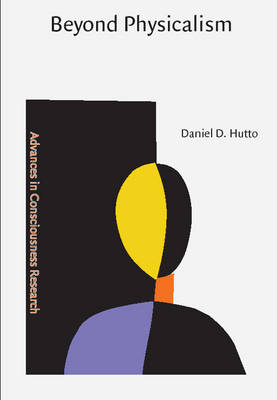Advances in Consciousness Research
2 primary works
Book 17
Will our everyday account of ourselves be vindicated by a new science? Or, will our self-understanding remain untouched by such developments? This book argues that beliefs and desires have a legitimate place in the explanation of action. Eliminativist arguments mistakenly focus on the vehicles of content not content itself. This book asks whether a naturalistic theory of content is possible. It is argued that a modest biosemantic theory of intentional, but nonconceptual, content is the naturalist's best bet. A theory of this kind complements connectionism and recent work on embodied and embedded cognition. But intentional content is not equivalent to propositional content. In order to understand propositional content we must rely on Davidsonian radical interpretation.
However, radical interpretation is shown to be at odds with physicalism. But if the best naturalised theory of content we are likely to get from cognitive science is only a theory of intentional content, then a naturalistic explanation of scientific theorising is not possible. It is concluded that cognitive science alone cannot explain the nature of our minds and that eliminativism is intellectually incoherent. (Series A)
However, radical interpretation is shown to be at odds with physicalism. But if the best naturalised theory of content we are likely to get from cognitive science is only a theory of intentional content, then a naturalistic explanation of scientific theorising is not possible. It is concluded that cognitive science alone cannot explain the nature of our minds and that eliminativism is intellectually incoherent. (Series A)
Book 21
Unlike standard attempts to address the so-called ‘hard problem’ of consciousness, which assume our understanding of consciousness is unproblematic, this book begins by focusing on phenomenology and is devoted to clarifying the relations between intentionality, propositional content and experience. In particular, it argues that the subjectivity of experience cannot be understood in representationalist terms. This is important, for it is because many philosophers fail to come to terms with subjectivity that they are at a loss to provide a convincing solution to the mind-body problem. In this light the metaphysical problem is revealed to be a product of the misguided attempt to incorporate consciousness within an object-based schema, inspired by physicalism. A similar problem arises in the interpretation of quantum mechanics and this gives us further reason to look beyond physicalism, in matters metaphysical. Thus the virtues of absolute idealism are re-examined, as are the wider consequences of adopting its understanding of truth within the philosophy of science.
This book complements the arguments and investigations of The Presence of Mind, which it partners. (Series A)
This book complements the arguments and investigations of The Presence of Mind, which it partners. (Series A)

